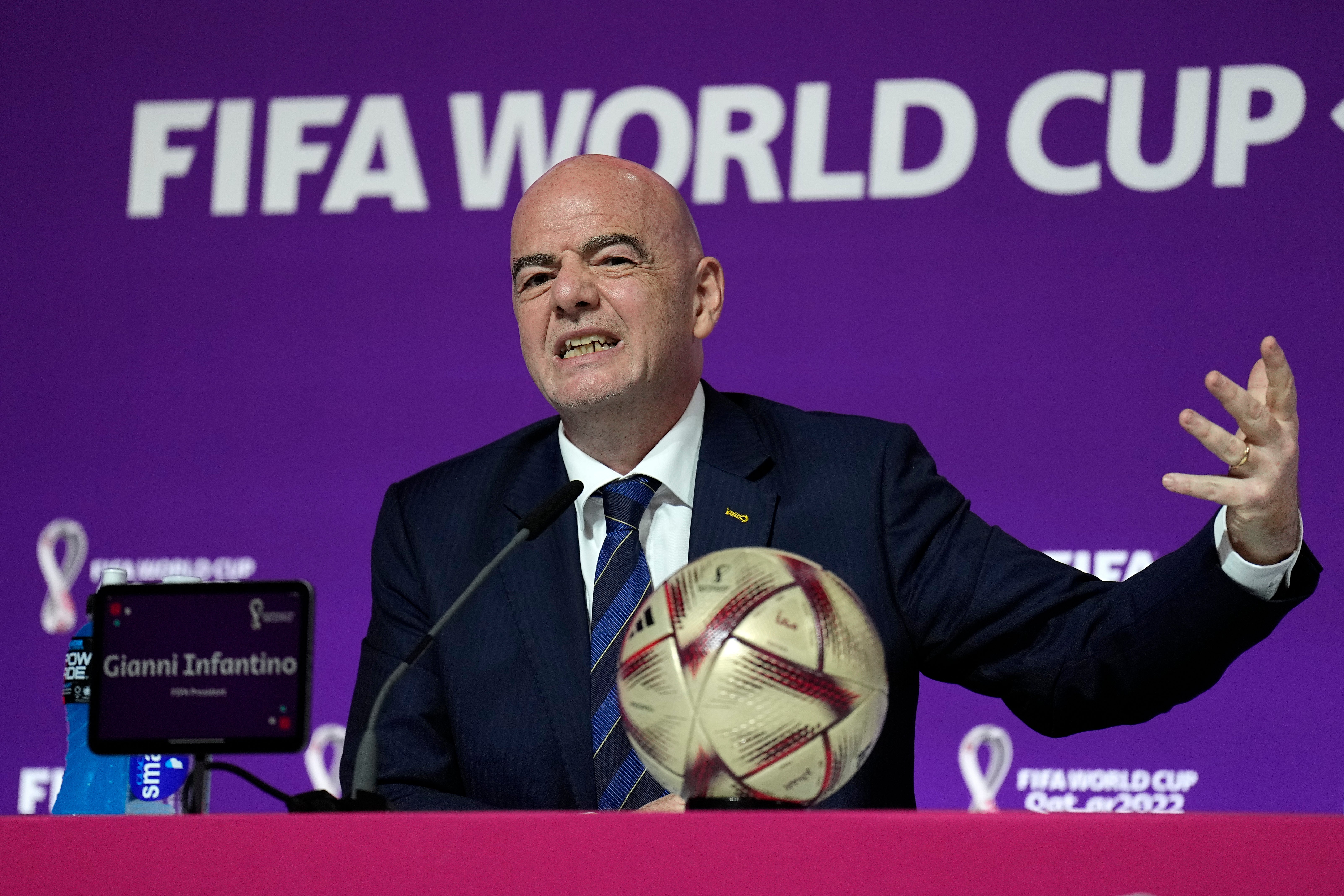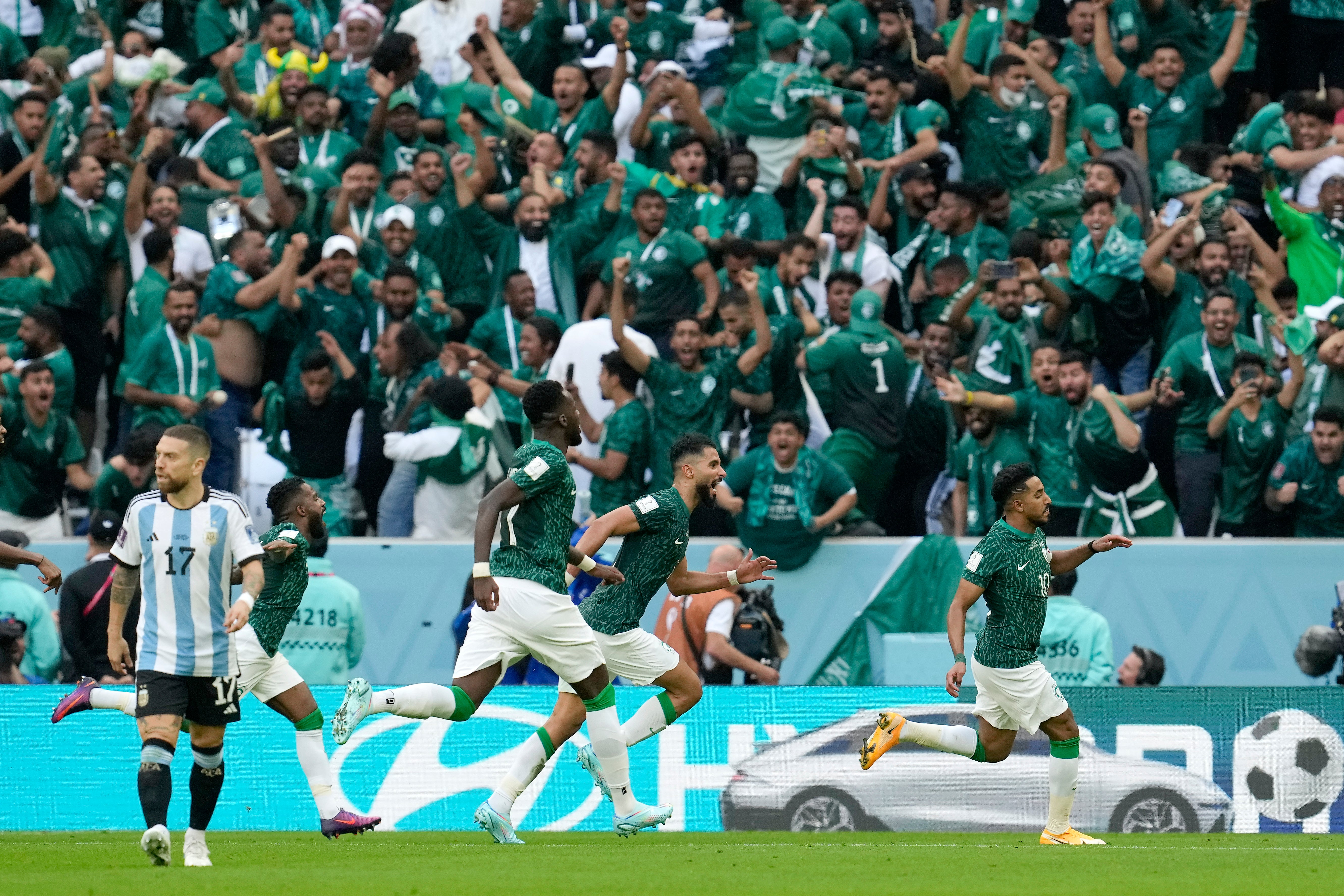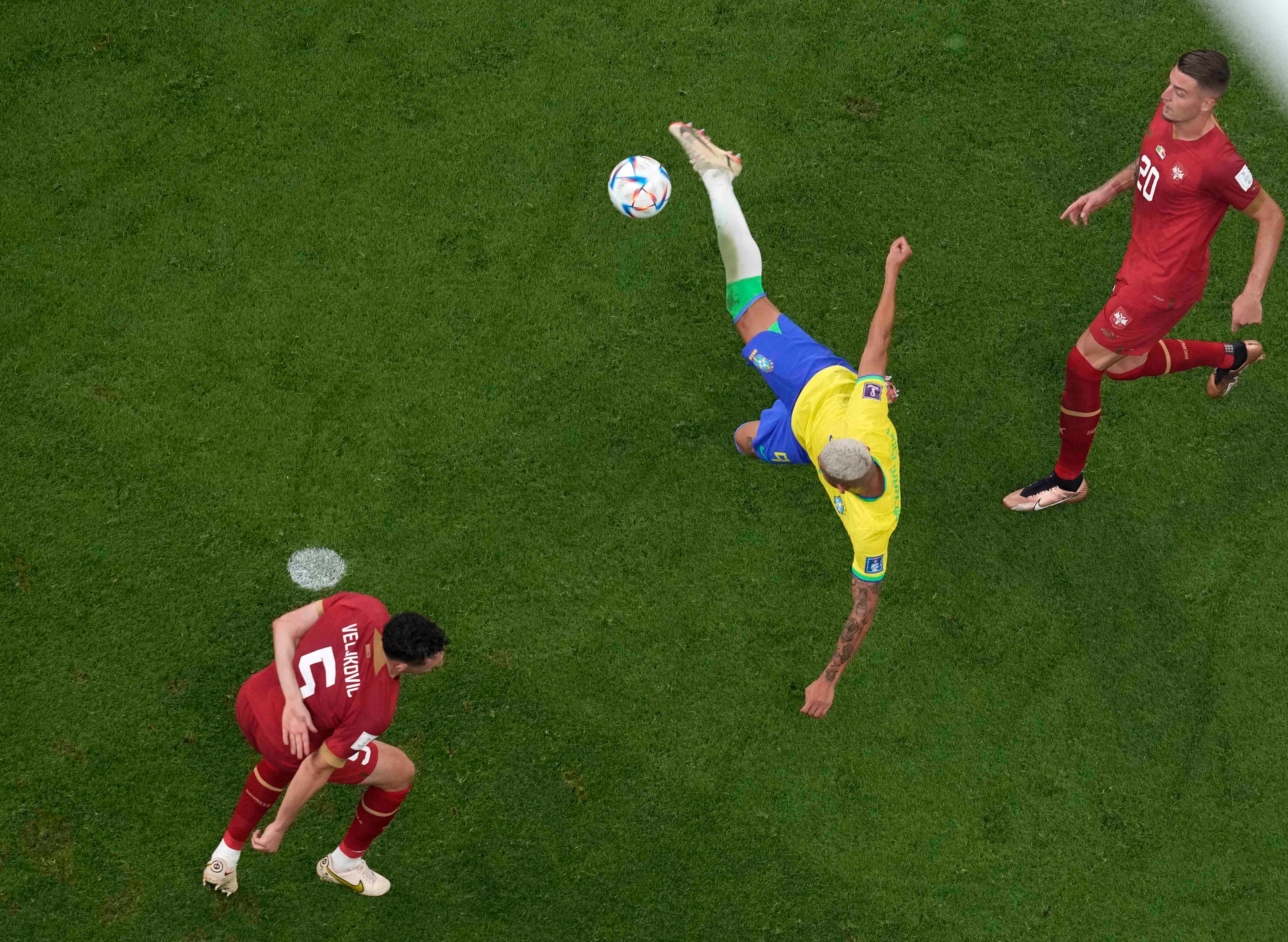
Gianni Infantino said what Gianni Infantino was bound to say. “The best World Cup ever,” claimed a self-glorifying propagandist. For some, the Fifa president’s verdict is automatically invalid: the choice of Qatar as hosts, the corruption in the voting, the shift of the World Cup into winter, the death of thousands of migrant workers, the attempts to threaten anyone protesting about the lack of rights for the LGBTQ+ community, the fake attendance figures and the rampant dishonesty feel reasons to disqualify 2022.
But if, as Infantino prefers, we concentrate on the football, does it justify that lofty boast? After all, Russia’s tarnished, tainted tournament actually contained plenty of very good football. There are grounds for calling it one of the best; perhaps, then, Qatar is not even the best World Cup of the Infantino presidency.
Part of his argument seemed reliant on record revenues and television viewing figures, which can scarcely contribute to an assessment of events on the field. But 2022’s claim to greatness rests on several factors.

Perhaps most pertinently now, there is the presence in the final of two, very different outstanding players, each operating at the peak of his powers. Should Lionel Messi prevail, a sense of narrative would surround this tournament that would cast it in a more favourable light. If it is Kylian Mbappe, it has the potential to stand out for decades, much as Pele’s World Cups did. Either way, a dominant individual can shape memories more than the team triumphs of 2006, 2010 and 2014.
Morocco’s surge into uncharted territory for African team, and the fact they did so with much Arab support in an Arab country, added another dimension to the tournament; whether it proves the start of a bigger African charge into the semi-finals, reshaping the global game, or an endearing one-off, it lends a significance.
It is to 2022’s credit that there have been few World Cups with more shocks. Tunisia beating France and Cameroon defeating Brazil may have changed little, and come against weakened teams, but Japan’s twin comebacks against Germany and Spain were seismic and significant. Australia’s admirable win over Denmark was overshadowed because of the scale of other results. Saudi Arabia’s opening victory against Argentina probably belongs in the five most surprising World Cup wins in history. Morocco’s trilogy of triumphs over top-10 teams, in Belgium, Spain and Portugal, is as remarkable. Croatia’s defeat of Brazil, albeit on penalties, showed the power of smaller nations, which has been a theme of this World Cup.

From a perspective of high drama in swift succession, it probably peaked with the brilliant final round of the group stages. The successive high-wire acts of Belgium’s elimination, complete with Romelu Lukaku’s host of missed chances against Croatia, followed by Germany’s, because Japan suddenly beat Spain, and Uruguay’s, with a South Korea comeback against Portugal leaving Luis Suarez in tears, was an advertisement for the 32-team competition, not the bloated 48-side version which will be introduced in 2026.
The double-header of Cameroon 3-3 Serbia and Ghana 3-2 South Korea offered two World Cup classics back to back. The 2-2 draw between Argentina and the Netherlands, and the subsequent shootout, probably ranks as the game of the tournament, the sort still destined to be featured in montages when some of the protagonists are pensioners.
And yet the reality is that every World Cup is good, to varying degrees, with Fifa always rescued by the actual football. Every World Cup has great games; 2022 may have had a smaller share than in some previous tournaments. There is a case for arguing it was not even the best match between Argentina and the Netherlands the competition has seen. There has not been a scoreline as resonant as Germany’s 7-1 humiliation of Brazil in 2014, while neither semi-final was a classic in the mould of West Germany versus France in 1982 or the Germans against Italy in 1970.
There have been terrific goals, and Richarlison’s scissor kick against Serbia is surely the best so far, but probably none to feature in the all-time top 10. Get past the obvious duo of Messi and Mbappe, plus the magnificent makeshift midfielder Antoine Griezmann, and it is harder to identify a host of high-class attack-minded players in peak form; unlike in, say, 1994 or 1998, let alone 1982 and 1970. In 1994, for instance, there were Romario, Roberto Baggio, Dennis Bergkamp, Gheorghe Hagi, Hristo Stoichkov and Jurgen Klinsmann; 2022 only has three such players who have reached that level.

France, as the defending champions who have reached a second successive final, have a strong case to be called a great team; Argentina may make that claim if they win, especially given a record of a solitary defeat in 42 games. Neither, however, may be the most celebrated World Cup winners for their style of play, a distinction that has long resided with the Brazil team of 1970. Nor will there be a loser remembered as fondly as the 1982 Brazilians.
In the larger picture, the overall standard of the quarter-finalists felt higher in 1998 and 2006. The wider theme is that the international game has now fallen behind its club counterpart; the last eight of most Champions Leagues is better than the last eight of a World Cup now.
All of which may be the kind of inconvenient detail Infantino avoids as he tries to expand the Club World Cup in a power grab at Uefa. The future of the actual World Cup, with 48 teams, will be bigger, which might meet Infantino’s definition of better. Yet, and while all judgments are subjective, a wider view is that 1970 and 1982 represent the gold standard of World Cups. Others – 1994, 1998, maybe 2006 and 2018 – were very good. Infantino may have bought into Qatar’s slogan of “Now is All” to ignore the evidence of history and argue that 2022 is the best. For some of the rest of us, even when focusing on footballing grounds, it won’t rank in the top five, and perhaps not the top 10.







